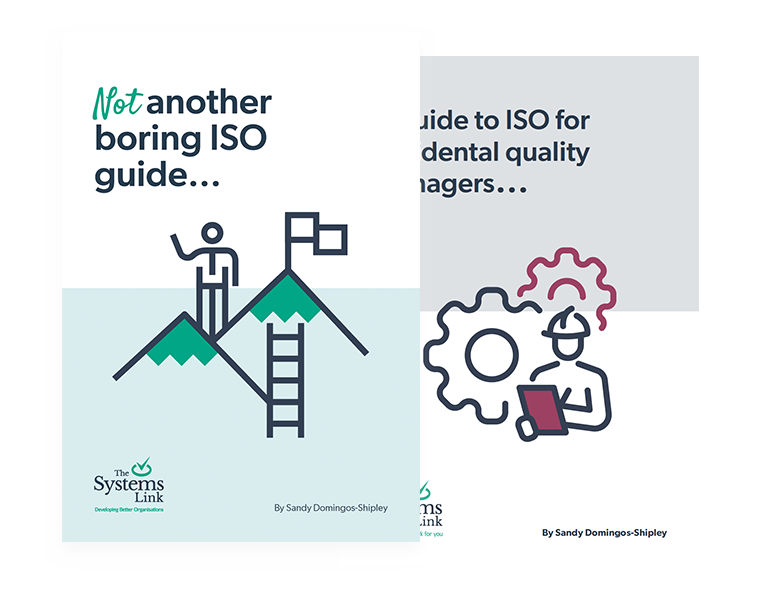There was a time when a person left education, got a job with a company and stayed with that company until retirement. These days that rarely happens. Not only do most employees move from company to company throughout their career, they often change roles too.
And that is how so many people find themselves accidentally falling into roles they haven’t necessarily trained for, like a quality manager role, for example.
Maybe your previous quality manager retired or moved on, and the role was offered as a promotion or development opportunity. Perhaps you inherited the role as part of a restructure.
Your official job title might not even be quality manager – you simply maintain the QMS (quality management system), so your organisation can retain their ISO 9001 accreditation.
Whether you ended up with the role willingly or by default, quality is now your responsibility, and that can be a daunting prospect.
ISO 9001 and your QMS
The ISO 9000 family of standards is designed to help organisations meet customers and stakeholders' needs while meeting statutory and regulatory requirements related to a product or service. The overriding purpose is to ensure quality.
ISO 9001 certification is a piece of paper that shows your organisation can demonstrate that it meets these standards.
All too often, businesses focus on getting that piece of paper so they can tender for lucrative contracts. And while that is certainly a benefit of ISO 9001, it shouldn’t be the sole focus.
ISO 9001 is a framework that creates the foundation on which you can build a world-class business.
If that framework is viewed simply as a means to an end, it will be implemented as a tick box exercise with things being done just to satisfy ISO auditors.
If you implement that framework to achieve its true purpose – to improve your business – you’ll see much bigger benefits than just winning better contracts.
Implementing ISO frameworks requires someone to take ownership of the QMS, and if you’re reading this, chances are, that’s you. But that doesn’t mean only one person in the organisation should understand the ISO methodology.
Getting buy-in from your colleagues
Getting buy-in from colleagues can be tough, but the biggest barriers are usually caused by a lack of understanding.
When the focus has been on creating processes to satisfy auditors, rather than creating processes that fit the way the business operates, there can be resentment or resistance to the process.
Everything the ISO standard asks you to do is designed to improve your business, so go back to basics and look at what is being asked of you.
What is the purpose of this process? How will it improve our business?
Once you understand that, you can help your colleagues understand it too. And you can get their ideas and feedback on how to improve the process.
Focus on the customer
No business will survive if it doesn’t have customers. It doesn’t matter how good your products are, you need someone to buy them. And if you can’t supply what your customers want to the standard they want, then you’ll spend more of your time rectifying problems than solving them.
That’s why your people, processes, and systems should all focus on delivering customer satisfaction.
The purpose of a QMS is to ensure you deliver quality products and services, so that customer satisfaction is high.
If you keep this in mind, it will be easier to maintain and improve your QMS. Question every process – how does this improve our ability to deliver customer satisfaction?
How to get more from your QMS
The great thing about a QMS is once it’s in place, you can build on it, add to it, and change it as your business needs change.
That’s why your focus as a quality manager should be improving your QMS, not simply maintaining it.
If you are continually improving it, you’ll be able to unlock the many benefits an effective QMS can provide:
• Ensure consistent quality
• Improve customer retention
• Make more informed business decisions
• Reduce errors and increase profits
• Create new business opportunities.
And those benefits can be unlocked with or without ISO certification. The certificate simply proves to external parties that you have world-class systems. Internally, the proof will be in the results you get.
Download your free copy of: A Guide to ISO for Accidental Quality Managers
All too often, ‘accidental’ quality managers are left to sink or swim, with very little training on what the role entails. And if your senior management team and peers aren’t bought-in to the idea of having an effective QMS, that can make the role even more challenging.
Regardless of whether your organisation is thinking about ISO 9001 or is already working toward certification or recertification, the frameworks that sit behind the standard will benefit you.
That’s why I’ve created my free eBook – A Guide to ISO for Accidental Quality Managers. You can get your free copy here.


